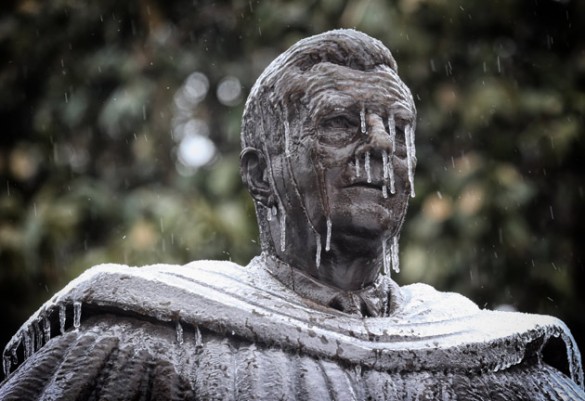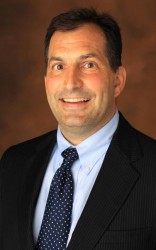
It was a hot seat to be in for such a cold day. Vanderbilt Provost Susan Wente, just seven months into the job, had to decide whether the university would cancel classes in response to an ice and snow storm descending on Middle Tennessee.

“I most definitely heard the stories of those who recalled times of greater snow accumulation wherein classes were held,” said Wente, who ultimately canceled classes Feb. 16 and 17 after precipitation and low temperatures made Nashville and the Vanderbilt campus into a gigantic ice rink.
“However, we have to consider that our demographics and the spread of the metropolitan area have changed much in the past decades,” she said. “Though we have a residential campus for undergraduates, many of our professional and graduate students do not live within walking distance of campus. The same is true for faculty and staff.”
According to the Vanderbilt Sustainability and Environmental Management Office, the average one-way commute to Vanderbilt is 26 miles.
“I myself walked in and out on Monday, Tuesday and Wednesday,” Wente said. “But I live only about 1.5 miles from my office and I have lots of personal experience with severe winter weather from growing up in Iowa.”
Wente did not contemplate alone. Vanderbilt Police, Campus Dining, News and Communications, Human Resources, Plant Operations and others offered perspective. Eric Kopstain, vice chancellor for administration, helped Wente balance all the opinions.

“My view is always to try to have a systematic approach to decisions,” Kopstain said. “With weather, it’s hard to be systematic. For me, safety and security are paramount. I’d much rather defend closing classes than defend really bad things that happen to people because we didn’t.”
Other factors in the decision to cancel classes included Tennessee declaring a state of emergency Feb. 17, Nashville Mayor Karl Dean requesting that all nonessential travel be suspended, and the suspension of public transportation in Nashville.
Some long-scheduled activities went forward on campus.
“We had staff staying here to be sure that dining services was providing for the students,” Wente said. “We had high school seniors here on Tuesday morning for their Ingram Scholars interviews, and the faculty, students and staff who were interviewing and hosting them were here around the clock to take care of them.”
As conditions improved, Wente made the decision to resume classes on Wednesday, Feb. 18, but left individual professors empowered to make their own decisions to delay their classes further if they felt it necessary.
“We resumed classes more quickly than most other places because we’re a residential college,” Kopstain said. “Most students here want to continue to learn. If they’re stuck on campus with no classes, they get stir crazy.”
The experience left Wente impressed with the grit of many on campus.
“I witnessed firsthand how devoted our faculty and staff are to our students and our educational mission,” Wente said. “It was an incredibly difficult storm to clean up, and our campus staff worked long hours, non-stop, to do their very best.”